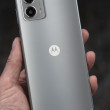A Visual Guide to AWS
So the question every sports fan wants to know is: who won?! Who won the AWS auction? The (nice, but somehow unsatisfying) answer is that everybody was a winner. Well, almost everyone....
Although Sprint's joint venture with the cable companies was a big winner, Sprint didn't participate directly. That spectrum won't be used for Sprint-branded service or existing MVNOs, since Sprint has always had plenty of spectrum, and has even more since merging with Nextel. It won't be used to create a whole new, separate wireless phone company, either. Sprint didn't enter into the joint venture to compete with itself that way.
Alltel was curiously absent from bidding. Apparently they think they have enough spectrum already, or that the AWS spectrum was too expensive. It would also seem to indicate that they don't have major expansion plans, or they plan to expand only via mergers and acquisitions.
Pretty much all of the other major players in the biz played the AWS auction game.

The AWS auction was far more important to T-Mobile than any other company. T-Mobile has, until now, been unable to launch any kind of 3G service due to lack of spectrum. AWS will finally give them the spectrum they need to launch 3G and catch up to the other major carriers.
T-Mobile's new AWS licenses cover the whole country, including Hawaii, Alaska, Puerto Rico, and the Virgin Islands. To cover the whole country, T-Mobile opted to go after the larger, simpler (but more expensive) D-F blocks, which are divided by REAG.
T-Mobile tried to get the coveted 20 MHz F block where they could, but were out-bid by Verizon Wireless in many regions. They did score F block licenses in the Central and West regions, and they picked up both the D and E block in the Southeast.
That left them with only 10 MHz of AWS spectrum in the Northeast, Great Lakes, and Mississippi Valley regions. That might not be enough for major cities, so they beefed it up with an extra 110 A and C block licenses in urban areas. Their biggest A block wins were in the New York and Chicago areas. Their biggest C block licenses are for Philadelphia, Phoenix, LA, and Seattle. That will give them a whopping 30 MHz of AWS spectrum in New York, Chicago, Phoenix, LA, and Seattle.

Verizon didn't mess around with the AWS auction. They didn't bother with any of that 10 MHz block nonsense. Every license they won was a big ol' 20 MHz chunk. They even snapped up the most valuable license of the whole auction: the 20 MHz F block for the Northeast. That license alone cost them over $1.3 billion.
They also picked up the valuable F block in the Southeast, Great Lakes, and Mississippi Valley regions, giving them a huge swath of 20 MHz spectrum covering the whole Mississippi river area and everything east of it, well over half the country (in population.)
The only smaller A and B block licenses they bothered with were for Louisiana and Hawaii.

SpectrumCo is Sprint's joint venture with the major cable companies (including Comcast, Time Warner, and Cox.)
They picked up 20 MHz licenses in the B block covering most of the populated areas of the continental US, plus an odd extra 10 MHz in Houston. They also went after Hawaii, although Verizon out-bid them for the B block, so they picked up the C and D blocks there instead.
With the exception of Hawaii, it's an advantage that all of SpectrumCo's AWS spectrum is in one block. It could make it easier for hardware manufacturers to create radios and antennas for just that one very specific frequency band.

MetroPCS didn't buy very many licenses, but the ones they did buy were pretty darn big. They spent almost $1.4 billion - a huge amount for such a small company. Clearly they are ready to expand in a big way.
By far the most cash went toward the Northeast region, where they bought a 10 MHz regional license, plus an extra 10 MHz license for the all-important NYC metro area. They also greatly expanded their spectrum holdings in the west, buying a 10 Mhz regional license for the whole west coast, plus an extra 10 MHz for the Las Vegas area.
They also picked up some smaller licenses for the Dallas and Detroit areas. They already offer service in those cities, so the new spectrum is presumably to expand capacity and coverage in those areas.

Cingular bought a wide variety of different licenses. There's no one clear strategy or pattern to their purchases. They did spend $1.3 billion, though, so it's doubtful they bought the spectrum just to hold on to for a rainy day.
They picked up two major 10 MHz licenses covering the whole West and Central regions. They also supplemented that with an additional 20 MHz of A block spectrum in LA and Dallas.
They also picked up a smattering of licenses in the rest of the country, in the A, B and C blocks. The largest metro areas covered in that group are Boston, Washington/Baltimore, Miami, Atlanta, and Chicago. All of those were cheaper 10 MHz C block licenses. In smaller cities, they went for the larger 20 MHz A and B block licenses. They also bought the D block in Puerto Rico and the Virgin Islands.

Cricket spent $710 million (directly) in the AWS auction. Their largest purchase was the E block for the Central region, which they managed to snag for $122 million.
The rest of their purchases were mostly in the A and C blocks. Major cities covered include Milwaukee, Memphis, San Diego, Philadelphia, Washington, St. Louis, Baltimore, Minneapolis, and Seattle.
The Great Lakes D block (shown above in diagonal stripes) was bought by Denali, a company set up by Cricket specifically to participate in the AWS auction. Cricket helped start Denali with an initial investment of $7.6 million, which will be followed by an additional $83.9 million over the next year or so. Cricket also loaned Denali $203.8 million to buy the Great Lakes D block, and has promised to loan them another $87.3 million to build a network to use it. While Denali is technically a separate company, with all that money invested, clearly Cricket expects to use Denali's network for Cricket service.
So why go to all that trouble? To qualify for a "bidding credit" that Denali was entitled to as a "very small" company. Denali only had to pay 75% of what they bid. That may seem like cheating, but they were just playing by the rules the FCC created. Taking advantage of the bidding credit loophole saved them over $90 million.

Barat is another "very small" company created to take advantage of the small business rules in the AWS auction. Like Denali, Barat qualified for a 25% "bidding credit" discount.
Barat is backed by US Cellular, which made an initial capital contribution of $80 million to fund Barat's participation in the AWS auction. US Cellular has also promised more money if Barat needs it, which they probably will, since they now owe the FCC $127 million for the licenses they won. Given the financial situation, let's just call this US Cellular spectrum....
So US Cellular's big score was a 10 MHz E block license for the whole Mississippi Valley region. They also picked up a number of 20 MHz licenses in the A and B blocks, including St. Louis, Milwaukee, Tulsa, Des Moines, and Omaha. Their licenses for St. Louis and Topeka overlap with the big Mississippi Valley regional license, giving them 30 MHz total in those cities.


 What is C Band 5G?
What is C Band 5G?
 iPhone 14 Plus Offers a Big Screen For Less
iPhone 14 Plus Offers a Big Screen For Less
 iPhone 15 Series Goes All-In on USB-C and Dynamic Island
iPhone 15 Series Goes All-In on USB-C and Dynamic Island
 iPhone 16 Brings More Features to All Price Points, Including New Camera Control
iPhone 16 Brings More Features to All Price Points, Including New Camera Control
 Google Lens Now Lets You Refine a Visual Search with Text
Google Lens Now Lets You Refine a Visual Search with Text

